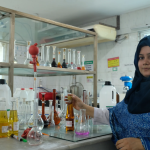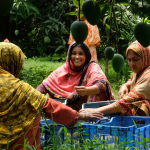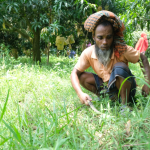Making the Difference for Women Farmers in Bangladesh
Advanced training programs delivered in the South Asian nation are improving production and financial resilience across the food production chain.
- Smallholder farmers have benefited from learning safer, more efficient harvesting techniques, pest control and financial management practices.
- Improved agricultural production has led to more than 200 percent growth for PRAN, one of Bangladesh’s largest food processors.
When harvest season came, Selina Khatun used to walk around her mango field in the early summer morning, wooden stick in hand, whacking tree branches so hard that the ripened fruit fell to the ground. Insects would swarm the mangos, and the fall—a few meters at least—often meant that the fruit was bruised by the time it made its way to the market.
Khatun now laughs and shakes her head as she recalls her old techniques. “Everything changed after the training,” she says, her smile wide.
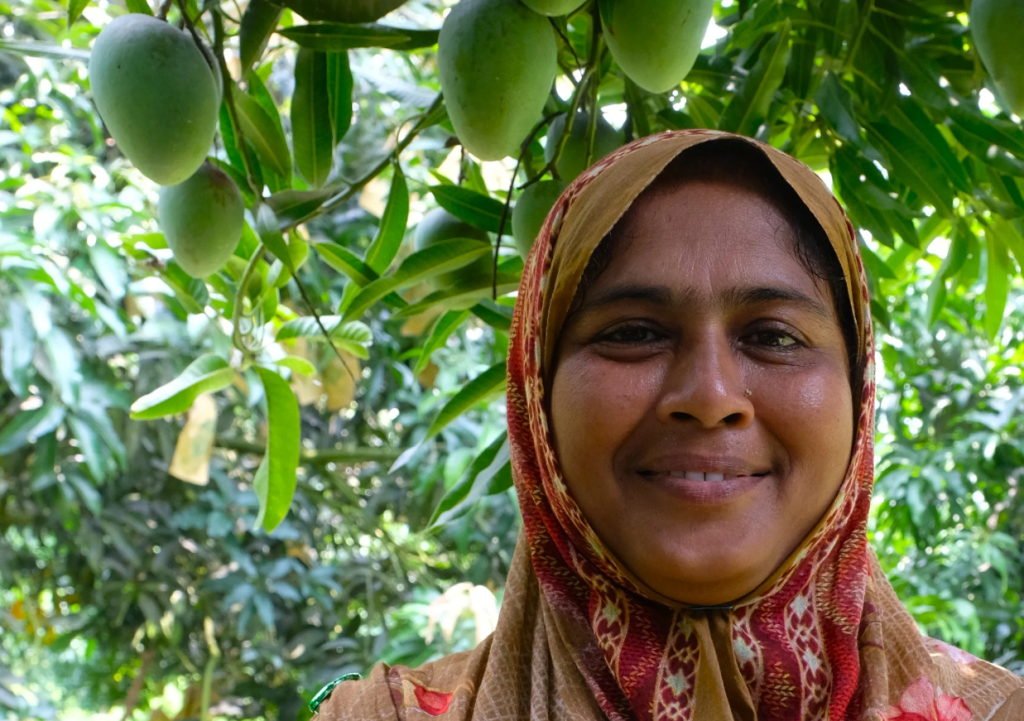
Selina Khatun supplies mangos to PRAN. Training allowed her to open her own bank account
Since the IFC-supported training on crop production and fertilizer management came to her village of Bashbaria in northern Bangladesh more than three years ago, Khatun is spending less—and earning more. As Khatun tells it, this has meant that she easily covers school fees for her two children and with the extra money, she often invites neighbors and friends to her home. “After the training, I opened my own bank account,” she said.
Khatun is one of more than 110,000 smallholder farmers supplying PRAN, one of Bangladesh’s largest food processors. With support from IFC and the Private Sector Window of the Global Agriculture and Food Security Program (GAFSP), PRAN has been working closely with smallholder farmers like Khatun, who have proven to be critical to the company’s supply chain and have helped fuel its rapid expansion.
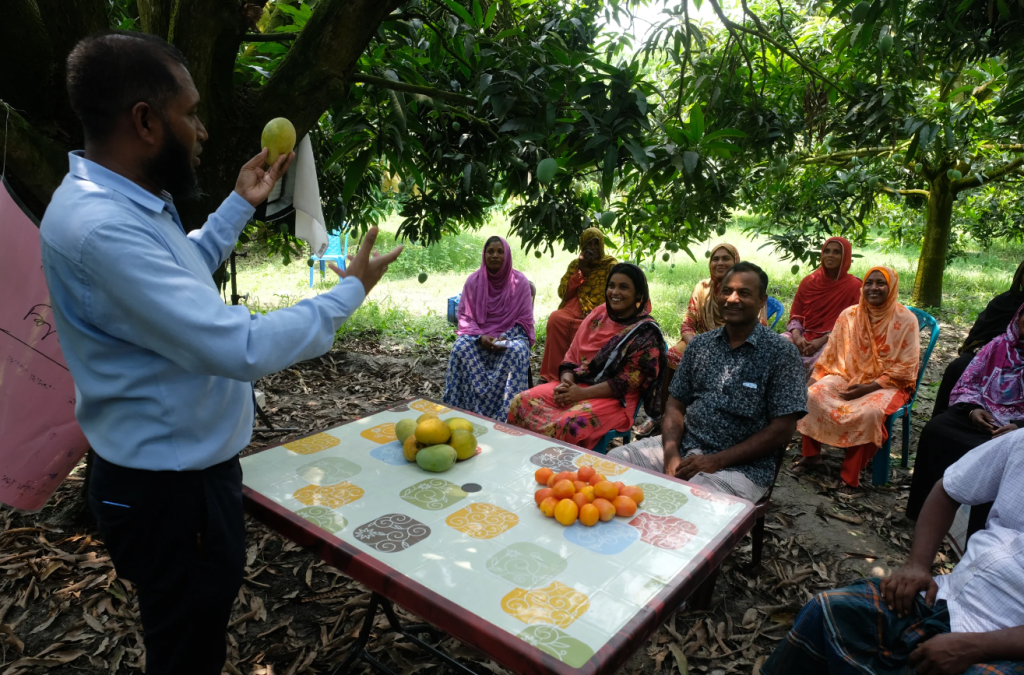
Md. Kamruzzaman Tito, head of contract farming for PRAN, at a recent training for smallholder farmers.
“For PRAN, working with farmers and providing this training means higher yields, less food loss, and higher quality products,” said Md. Kamruzzaman Tito, Deputy General Manager and head of contract farming for PRAN, who forges agreements between the company and farmers before production begins.
PRAN manufactures hundreds of food items, from pickled mango and ketchup to noodles and spices and though it’s a well-known domestic brand, it also exports to 145 countries. The company has 23 factories throughout the country and employs 145,000 people directly, in addition to an estimated 110,000 contract farmers who supply the company’s factories.
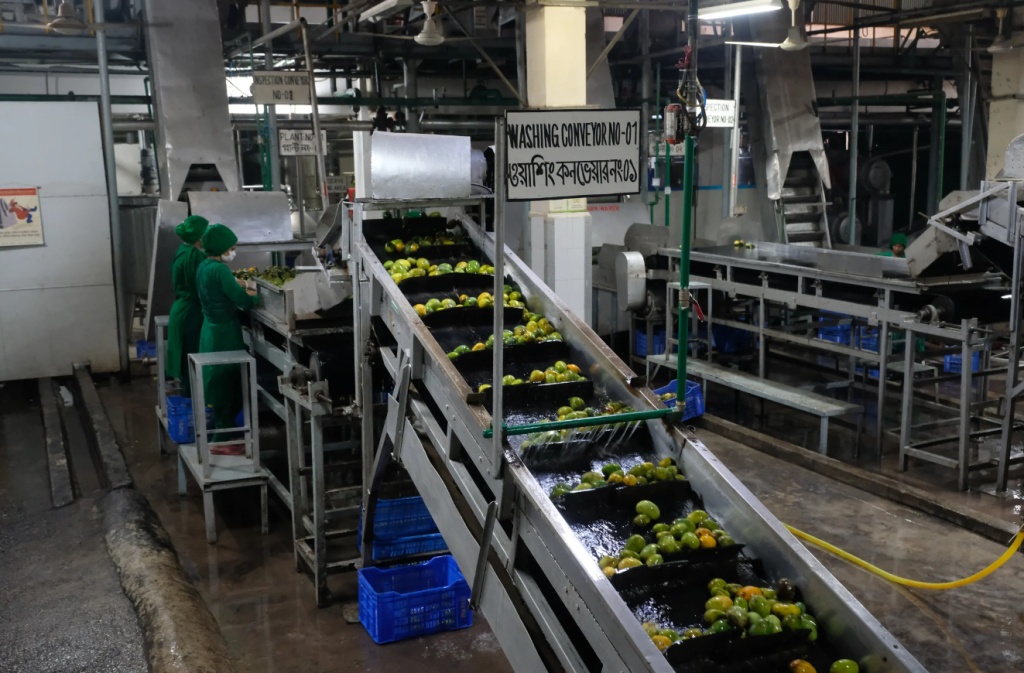
Factory workers at PRAN ensure quality control as part of an IFC-supported food safety training program
As part of the IFC-supported program, trainers work closely with farmers, teaching proper use of pesticides, more efficient harvest techniques and safe storage systems so that famers, for example, learn to place ripe mangos on a sheet or straw, rather than soil, immediately after harvest. Md. Shoriful Islam, a mango and tomato farmer who supplies PRAN, used to spray pesticides on the buds of flowering fruit trees, but he’s since learned that soap and water—cheaper, and more sustainable—is just as effective and also safer. “This knowledge has made a big difference,” he said. Islam, a volunteer trainer for PRAN, says that the nearly 70 farmers he trains “will show up for lessons no matter what time of the day. They are very enthusiastic,” he said.
Agriculture is critical to Bangladesh’s economy. Though it accounts for less than 12 percent of the country’s gross domestic product (GDP), it constitutes the bulk of employment opportunities in rural areas, particularly for women.
- PRAN’s food safety experts test products at an on-site laboratory
- Farmers supplying PRAN collect mangos from their fields
- PRAN training has taught farmers agricultural best practices and integrated pest management
“Before, he talked, and I listened. Now we both teach each other.” Farida Parveen
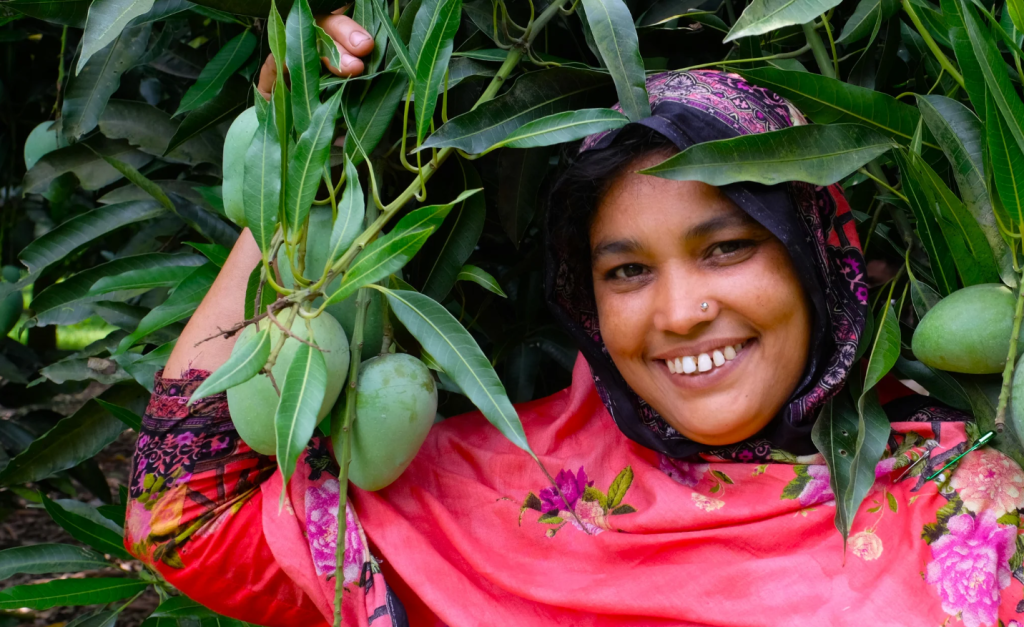
Farida Parveen says that more sustainable agricultural practices have increased her income by 30 percent.
Gender is therefore critical to the training. In addition to agricultural best practices and integrated pest management, women farmers in the program learn bookkeeping and basic accounting, alongside health and nutrition. Farida Parveen, a mango, rice and sesame farmer, says that more sustainable and effective agricultural practices have increased her income by 30 percent—and has helped her family withstand soaring inflation and rising food costs. But more significantly, Parveen says, she is now able to track costs for animal feed, fertilizer, and other agricultural inputs and has also taken over her family’s finances.
“I trained my husband, which makes me very proud,” she said, standing under the shade of a sprawling mango tree. “Before, he talked, and I listened. Now we both teach each other.”
In addition to the farmer trainings, IFC also works closely with PRAN management to boost food safety within the factories by implementing good hygiene and manufacturing practices. Together, they’ve ensured proper protective gear, taken precautions to eliminate cross-contamination, and instituted the exclusive use of sanitized water throughout the product line—from fruit juices to chocolate. With IFC’s guidance, PRAN now lists allergens on all its packaging and an on-site laboratory regularly tests for metal, aflatoxin— a mold growing carcinogen—and other contaminants. IFC has also helped the company install temperature control mechanisms—which keeps employees cool and food safe—while a traceability program means that problems along the factory line can be located and contained.
“IFC has had a very clear role in our growth, because without adequate food safety, you can’t export,” said Md. Hazrat Ali, general manager of PRAN’s factory in the Natore region. “We’ve grown by more than 200 percent since we first began working with IFC.”
Indeed, as IFC wraps up its farmer training program and looks to launch another IFC and GAFSP-supported food safety initiative, both farmers and PRAN management alike agree that there’s still work ahead. As Islam, the volunteer trainer and farmer, said recently, ripe mango in hand, “learning is a never-ending process.”
AUTHOR
Daphna Berman
SOURCE
Originally published on ifc.org
PHOTO
© Shoeb Faruquee/IFC
